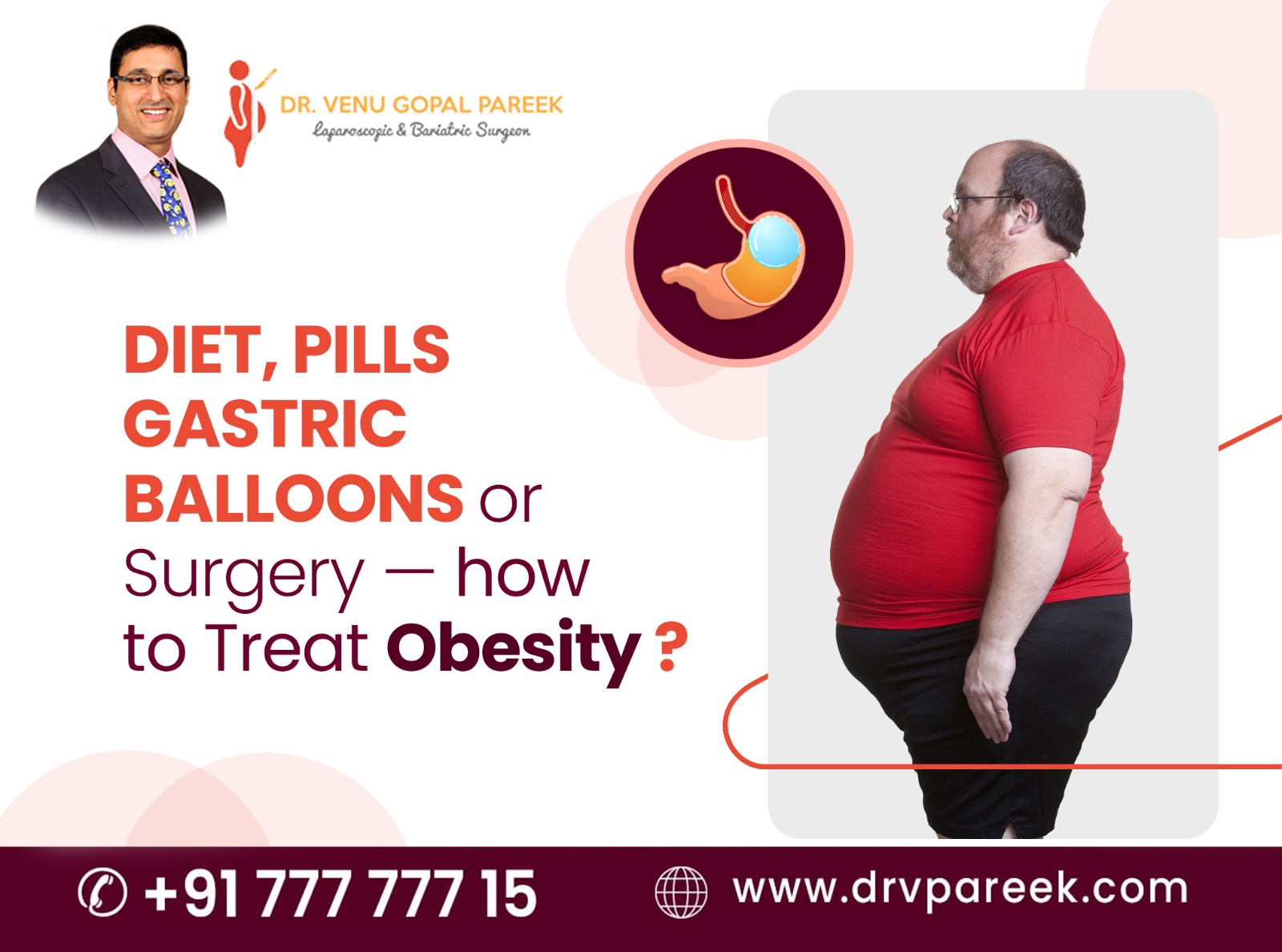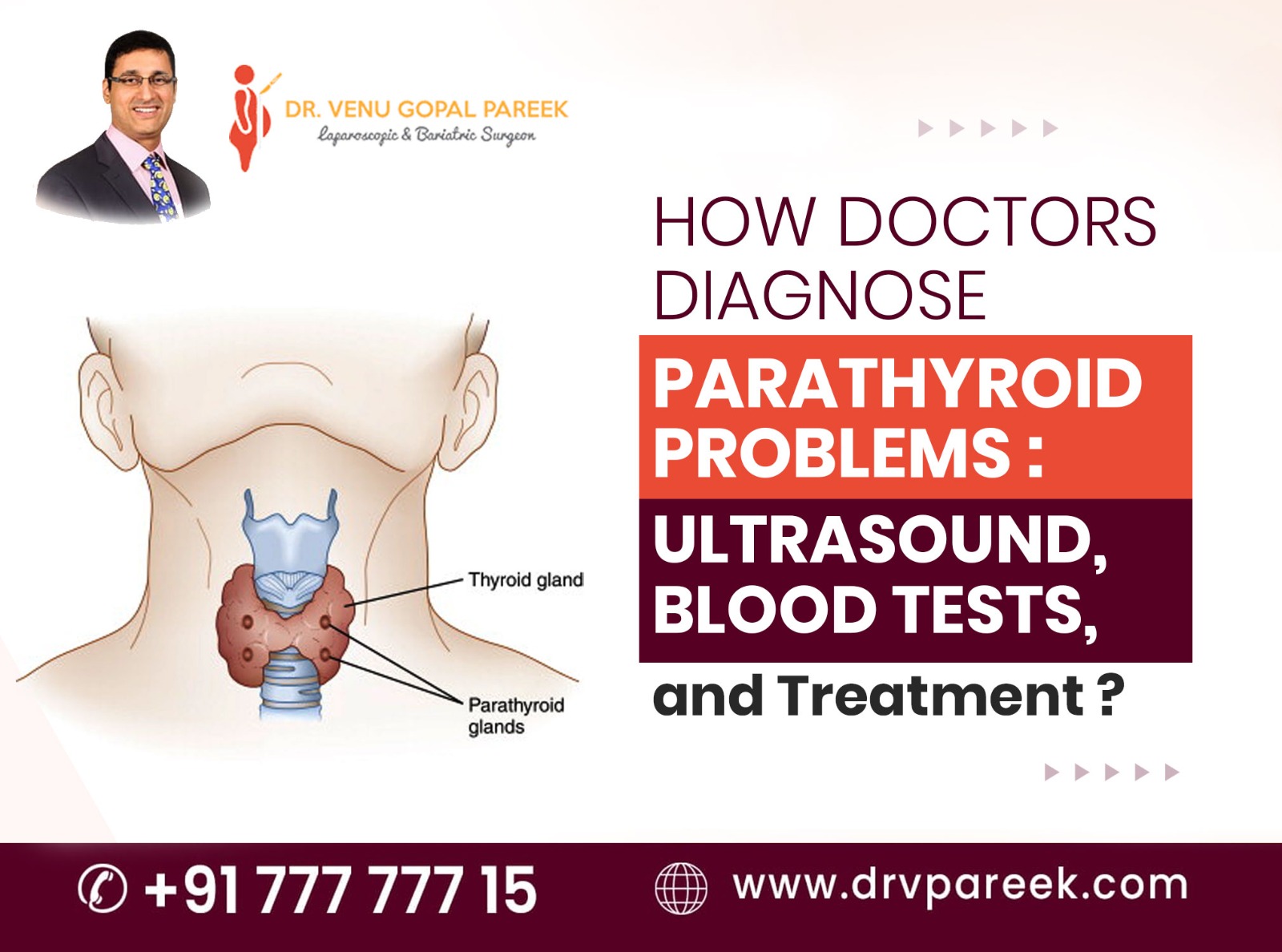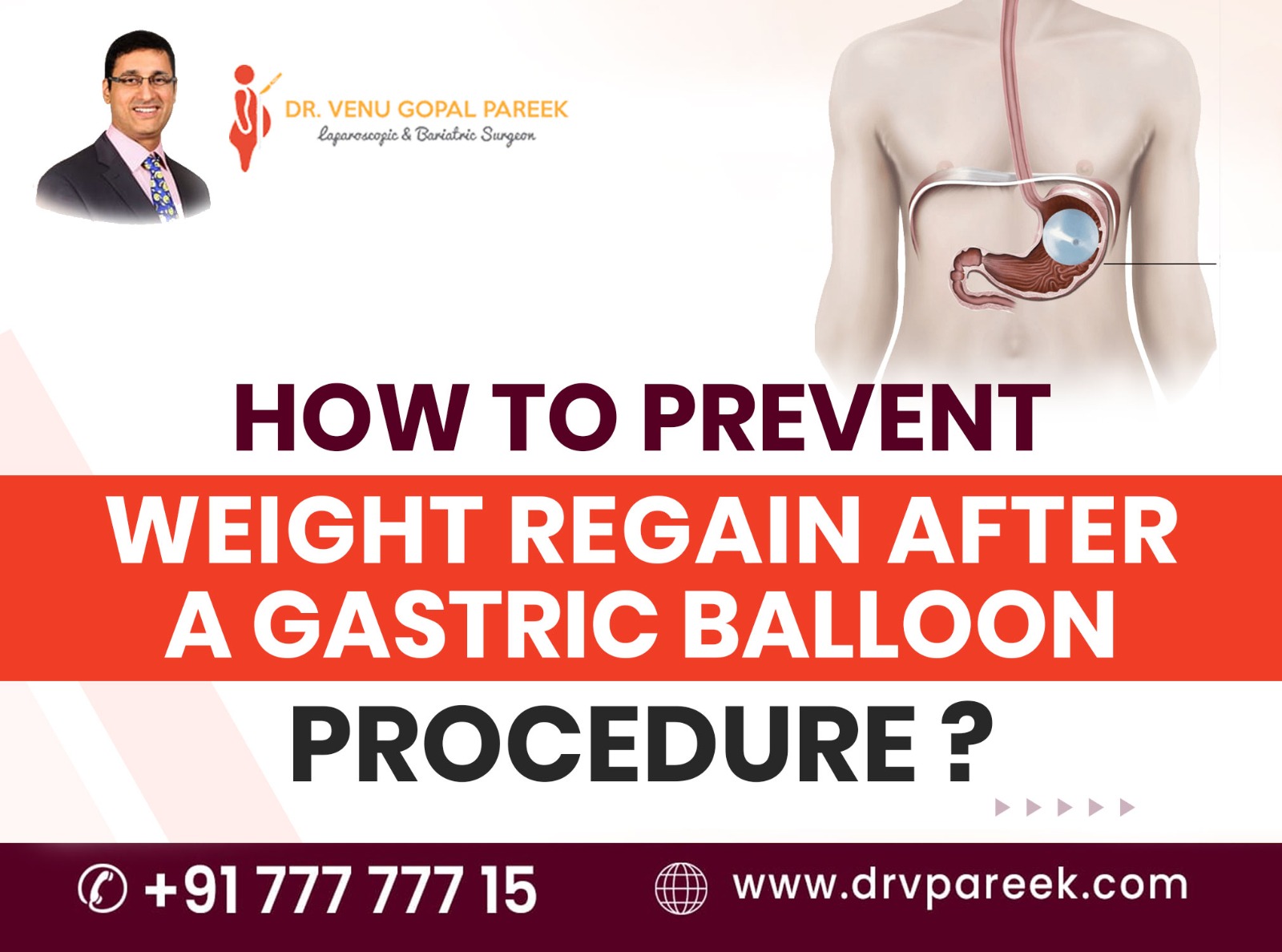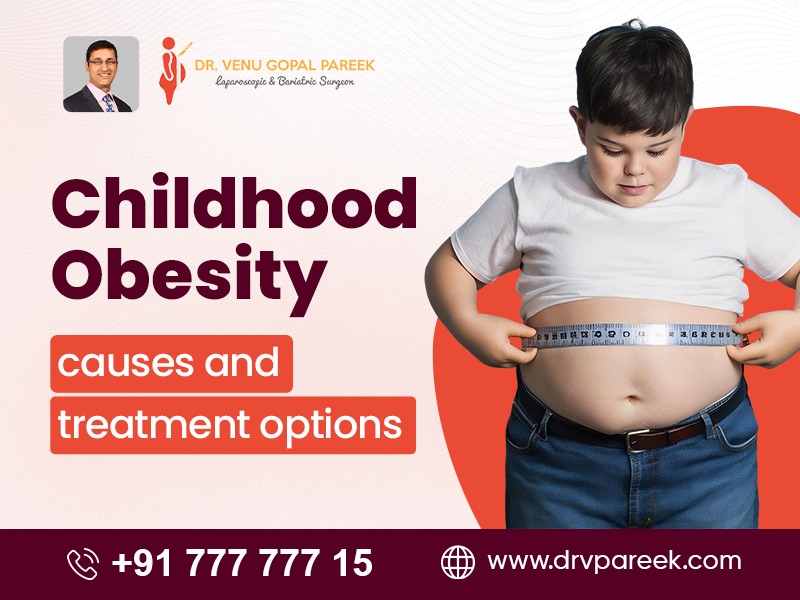
Diet, pills, gastric balloons, or surgery — how to treat obesity?
Everybody gains weight at some point in life, but you have to monitor and control your weight before you become obese. However, losing weight and maintaining it for a long time are ongoing challenges for obese people. With the constant development of new treatment methods like specific diets, medicines, and surgical procedures, it’s becoming complex and challenging to navigate the numerous options available.
In this article, Dr. Venugopal Pareek addresses various weight loss methods, offering valuable insights and guidance.
Almost all weight management programs have two phases:
- The short-term weight loss phase
- The lifelong weight loss maintenance phase.
The short-term phase is one that starts immediately after treatment and is mostly based on controlling the caloric intake. The second phase starts after a few years and is mainly based on regular physical activity, nutritious food habits, and a healthier lifestyle. Choosing the best weight loss method for a patient depends on many factors, such as the amount of excess weight, the goal of your weight loss, your desire to get relief from obesity-related diseases, etc.
What is the recommended amount of weight loss?
The recommended amount of weight loss is not the same for every person; it varies based on patient goals. For instance, treating obesity-related complications is the main goal; just losing 10% of excess weight will have significant health advantages. But if the goals are solely for appearance or physical fitness, losing 10% of excess body weight may not be enough.
Today, there are many different weight loss options available, ranging from small adjustments to the regular diet and exercise routines to bariatric surgery. Sometimes a combination of treatment options is used to get the best results.
Lifestyle changes
Lifestyle changes—in simplified terms, more exercise and dietary changes—could be the initial line of defence in the battle against obesity. Making these changes can result in weight loss and improved health outcomes. The traditional recommendation is to take 500 kcal deficit daily and exercise for at least 20-30 minutes a day.
The different diet types are as follows:
Calorie-restricted diets: These diets especially focus on restricting daily calorie consumption, which results in weight loss. Create a calorie-specific diet or use portion control approach.
Low-carb diets: This is a form of diet that focuses on reducing carbohydrate consumption, like the ketogenic diet or Atkins diet, which increases fats and proteins. These diets turn your body into a ketosis state, which involves burning fat for energy.
Low-fat diets: These diets focus on less fat consumption and more intake of fruits, vegetables, and whole grains.
Mediterranean diet: This type of diet focuses on whole foods, healthy fats, lean proteins, and the occasional consumption of wine. This diet has more benefits for the heart.
So changing your lifestyle can improve your overall health, moreover, dietary changes are generally inexpensive compared to other obesity treatments.
Medication for weight loss
For some people, just diet and exercise might not be enough to achieve their weight loss goals. For such people, along with lifestyle changes, prescribed medications that control digestion, absorption, appetite, or metabolism can be effective.
Weight loss medications
- Phentermine is a type of medication that suppresses your appetite, which makes you eat fewer calories.
- Orlistat (Alli, Xenical) medication prevents the absorption of certain fats.
- A combination of medications like phentermine-topiramate (Qsymia) and bupropion-naltrexone (Contrave) are used to enhance weight loss.
Medications can improve weight loss achieved by following a specific diet and exercise plan. Certain obesity-related complications, like diabetes and hypertension, can also be addressed.
Semaglutide injections for weight loss
Semaglutide is a new and popular anti-obesity medication which was approved by U.S. Food and Drug Administration in 2021. Semaglutide is an injectable drug that is used to treat diabetes.
At present, semaglutide is the only drug approved for weight loss. It is a self-injectable drug, and the suggested dose for weight loss is 2.4 milligrams, which is typically injected under the skin every week.
Experts say it is very effective for weight loss compared to other anti-obesity medications. However, semaglutide is not for everyone. So, consult a weight loss expert if you wish to try any weight loss medication. He will evaluate your condition and help you with best weight loss treatment option, including semaglutide, if you are a suitable candidate.
Gastric balloon procedure
The gastric balloon is a minimally invasive surgical procedure for weight loss. The procedure involves inserting a balloon into the stomach through the mouth with the help of an endoscope. After being placed inside the stomach, the balloon is filled with saline solutions to reduce space in the stomach. Eventually, the capacity of your stomach is reduced, so you may feel fuller even with less food intake.
balloon typically remains in place for six months, after which it is removed.
Benefits of gastric balloon
It is a minimally invasive method without surgical intervention, so the recovery time is very short.
The gastric balloon is a temporary procedure, where the balloon is removed after six months.
Many patients find it effective, as they lose significant weight during this procedure.
Bariatric Surgery
For people with severe obesity and ineffective non-surgical treatment options, bariatric surgery can be an effective way to lose weight. Most of these bariatric procedures involve altering the anatomy of the digestive system so that less food is taken, which results in significant weight loss.
Types of bariatric surgery
- Gastric bypass (Roux-en-Y)
- Sleeve gastrectomy or gastric sleeve
- Adjustable gastric Banding
- Biliopancreatic Diversion with Duodenal Switch (BPD/DS)
Benefits of bariatric surgery
- Patients can lose 50% to 70% of their excess weight within a few years.
- Along with weight loss, many patients can reverse or alleviate certain obesity-related conditions, like type 2 diabetes, hypertension, sleep apnea, etc.
- People can experience long-term weight loss results and health benefits.
No weight loss procedure can provide instant weight loss. Every weight loss journey should start with basic treatment. Choosing the right obesity treatment depends on many factors, which include the amount of weight you want to lose, the presence and severity of comorbid conditions, personal choices, and financial concerns.
If you are obese and looking for the best weight loss solution, consult Dr. Venugopal Pareek, one of the best bariatric surgeons in Hyderabad. He evaluates your condition completely and suggests the best weight loss treatment. Call +91 91777 77715 to book an appointment with the doctor.







